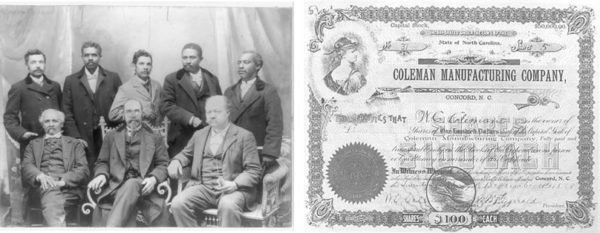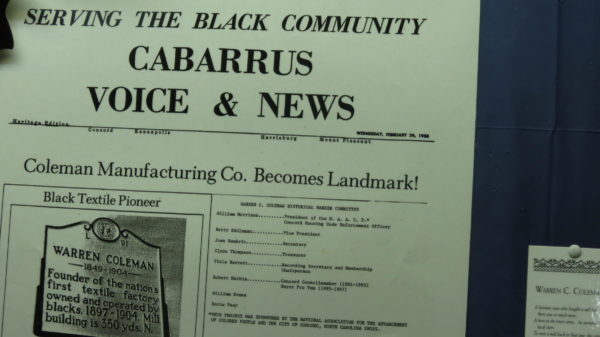Warren Clay Coleman, an African-American businessman in south-central North Carolina built the first black-owned and operated textile mills in the United States.
Coleman was born into slavery on March 28, 1849. His mother Roxanna was an enslaved woman while his father was Rufus Clay Barringer, a Confederate general.
At age 21, Coleman had become a soldier for the Confederacy during the Civil War with a primary responsibility of making boots for the troops.
Coleman attended Howard University. After college, he created small businesses, including a barbershop and candy store.
His father who was white gave him some money to purchase land in majority Black areas in Concord, North Carolina so he could invest in real estate.
Coleman created an estimated 100 cheap rental homes for Black residents. Years later, Coleman bought farms, city lots and also opened a general store by 1879.
He wanted to build a mill that would be owned and operated by Black people so he started to lay the foundation, but the process came to a halt due to financial difficulties.

To get financing for the mill, Coleman partnered with Washington Duke, a famous wealthy industrialist and railroad man to persuade white investors.
Duke brought in white investors and got insurance companies to sell policies since Black-owned businesses could not get policies alone at the time. The mill’s equipment was refurbished and required lots of maintenance because Coleman could not secure loans for new machinery. But even with setbacks, the mill opened in 1901, according to NPR.

When the mill opened, Coleman hired 300 people to work in his business and the mill became one of the most successful companies in the state. The mill operated smoothly from 1901 through 1904. It was described as an economic machine and an incubator for social change which provided a means by which Blacks could do well for themselves in the Jim Crow South.
“It was a game-changer for the African-American community because they had no place to be gainfully employed, except in homes of some (white) people. They were not used to paying blacks. They were their former slaves, so this (the mill) represented that dream for blacks to be able to purchase land, business and be self-sustaining,” Rev. Donald Anthony, the Chairman of the Historical Association of Concord, told The Charlotte Observer.

On the 31st of March 1904, Coleman died and his dream died with him. The turn of the century affected the textile industry due to inflated prices on cotton and as a result, Coleman’s mill was auctioned off.
In 1906, J.W. Cannon, the white textile entrepreneur whose Cannon Mills still operates the property today as Fieldcrest Cannon Plant acquired the mill.
However, Coleman had left behind a community with thriving Black homeowners in the town of Concord. He also left behind Price Memorial AME Zion Church, also in Concord.
A section of U.S. 601 was named Warren C. Coleman Boulevard in 2001 and in 2016, the location of his mill was recognized by the National Register of Historic Places.










